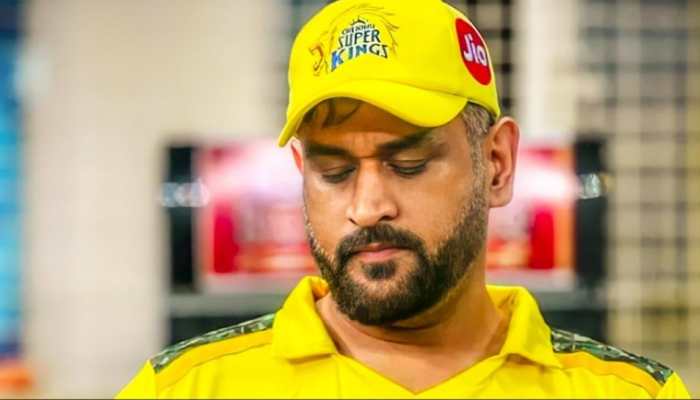When MS Dhoni walks onto a cricket field, the crowd still roars. The aura, the anticipation, and the reverence remain untouched. But against the Rajasthan Royals on Tuesday, as the Chennai Super Kings (CSK) stumbled yet again, the question that has loomed over IPL 2025 grew louder—has time finally caught up with Thala? Dhoni’s 17-ball 16, a scratchy innings punctuated by a solitary six, did little to inspire confidence or shift momentum in CSK’s favour. It wasn’t just the lack of runs; it was the nature of the innings. Cautious. Hesitant. A stark contrast to the fearless finisher who once redefined the role of a lower-order batter in T20 cricket.
For a franchise that has lifted the IPL trophy five times, finishing at the bottom of the table feels almost surreal. With just three wins in 13 games, the Super Kings have looked a shadow of their former selves. Injuries, inconsistent selections, and a lack of firepower have plagued them throughout the season. And while young talents like Dewald Brevis and Ayush Mhatre have shown promise, the absence of seasoned performances from stalwarts like Ravindra Jadeja and Devon Conway has left the team exposed.
Dhoni, who was thrust back into captaincy following Ruturaj Gaikwad’s injury, hasn’t had the fairy-tale resurgence fans hoped for. Instead, the 43-year-old has become the symbol of CSK’s stagnation—still revered, but no longer reviving.
Speaking after the match, Dhoni addressed the elephant in the room. “You’ve got to look at the wickets column,” he explained. “It puts pressure on the lower-middle order. I think Brevis’ innings was very nice, and the run rate was good, but we lost one or two extra wickets.”
Dhoni emphasized the need for young batters to find consistency instead of chasing high strike rates. “It’s hard to get consistency when you’re always looking for a 200 strike-rate. What matters is staying the same as you were in your first season,” he said.
But in a format driven by acceleration and impact, Dhoni’s pragmatic approach felt dated. T20 cricket has evolved, and questions persist about whether CSK can afford to lag behind in this transformation.
Former India batting coach Sanjay Bangar didn’t mince words when assessing Dhoni’s future. “At 43, even local cricket is tough on the body,” Bangar said on ESPNCricinfo. “If I were MS, I’d say it’s enough. I’ve done my part. Now let the franchise evolve.”
Bangar’s comment echoed what many fans and pundits have begun to feel—that CSK, and Dhoni, may benefit from a clean slate. While the franchise has failed to reach the Playoffs in four of the last six seasons, the belief in Dhoni’s leadership remains unwavering. But belief alone isn’t winning matches anymore.
MS Dhoni’s legacy is cemented—World Cup-winning captain, the first to claim all three major ICC trophies, and the architect of CSK’s IPL dynasty. But as the 2025 season nears its end, the franchise faces a crucial decision: build for the future or remain loyal to the past.
Reports suggest Dhoni has not yet hinted at retirement, and a return in IPL 2026 is possible. But is that the right move for CSK? Or is it time for a generational shift—handing over the reins to new leaders, while preserving Dhoni’s stature off the field as a mentor or strategist?








